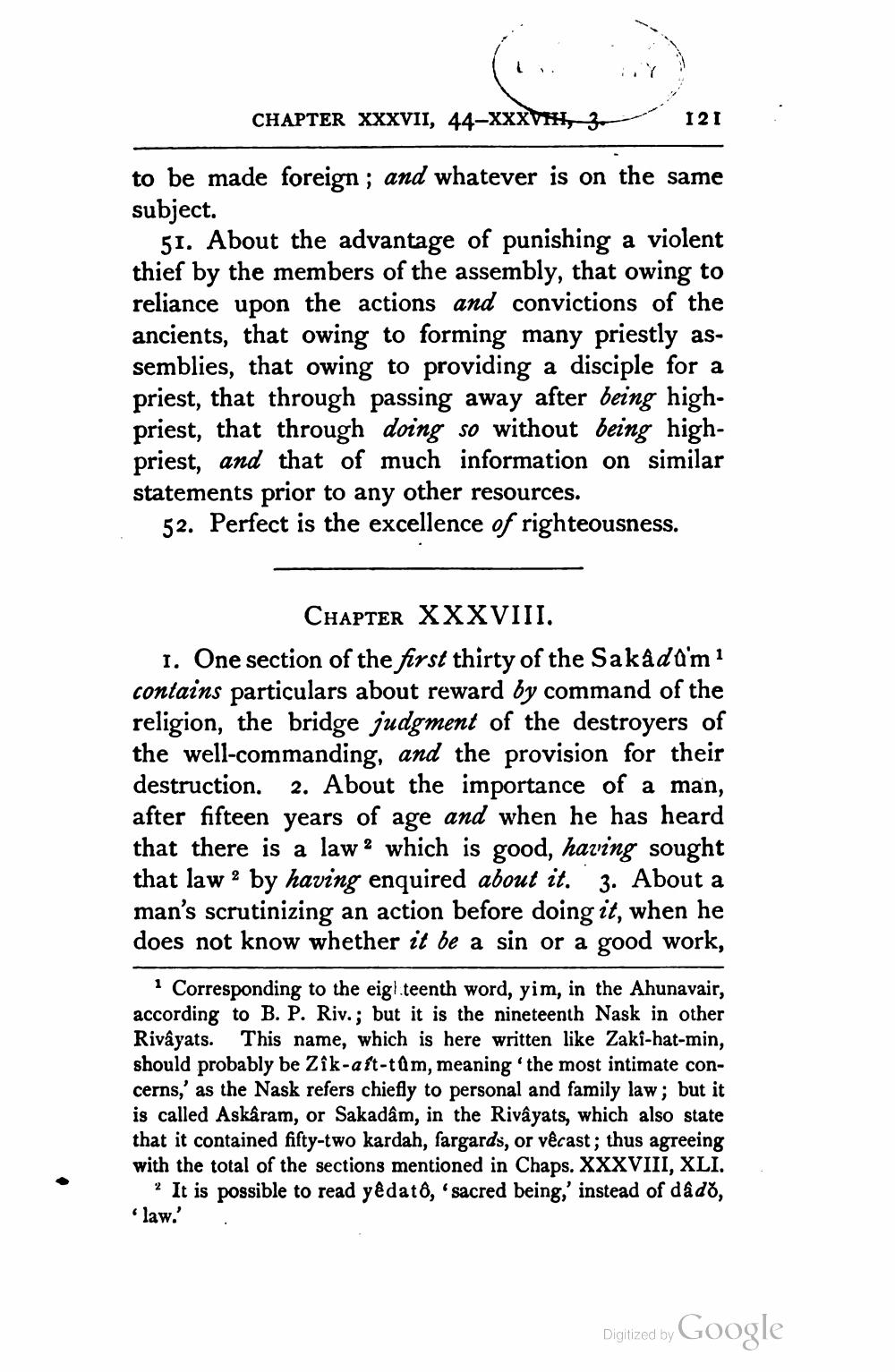________________
CHAPTER XXXVII, 44-XXXVH,
121
to be made foreign; and whatever is on the same subject.
51. About the advantage of punishing a violent thief by the members of the assembly, that owing to reliance upon the actions and convictions of the ancients, that owing to forming many priestly assemblies, that owing to providing a disciple for a priest, that through passing away after being highpriest, that through doing so without being highpriest, and that of much information on similar statements prior to any other resources.
52. Perfect is the excellence of righteousness.
CHAPTER XXXVIII. 1. One section of the first thirty of the Sakadu'm 1 contains particulars about reward by command of the religion, the bridge judgment of the destroyers of the well-commanding, and the provision for their destruction. 2. About the importance of a man, after fifteen years of age and when he has heard that there is a law? which is good, having sought that law ? by having enquired about it. 3. About a man's scrutinizing an action before doing it, when he does not know whether it be a sin or a good work,
* Corresponding to the eighteenth word, yim, in the Ahunavair, according to B. P. Riv.; but it is the nineteenth Nask in other Rivâyats. This name, which is here written like Zaki-hat-min, should probably be Zik-art-tûm, meaning the most intimate concerns,' as the Nask refers chiefly to personal and family law; but it is called Askaram, or Sakadam, in the Rivâyats, which also state that it contained fifty-two kardah, fargards, or vêcast; thus agreeing with the total of the sections mentioned in Chaps. XXXVIII, XLI.
? It is possible to read yêdato, sacred being,' instead of dado, law.
Digitized by Google




